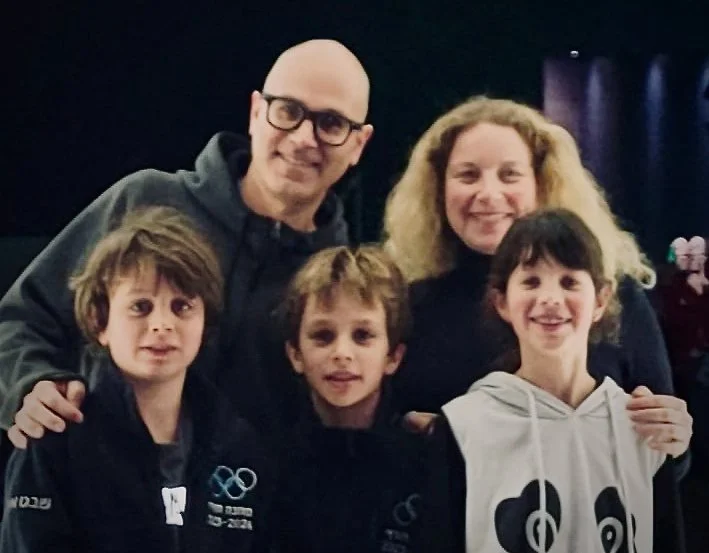At age 15, Becca Salky became her own medical detective, playing a key role in uncovering her diagnosis. Now, as a Clinical Research Coordinator at Massachusetts General Hospital, she focuses on spreading awareness about MOG, finding better diagnostic tools, leading clinical trials, and fighting gender disparity.
Read MoreKnow Rare writer Gina DeMillo Wagner’s new memoir, Forces of Nature explores powerful themes related to caregiving and rare disease.
Read MoreMany people living with rare disease describe life in terms of before and after: Before a diagnosis, they experience frustration, confusion, and exhaustion as they see various doctors and try to make sense of their symptoms. After a diagnosis, they may experience waves of relief mixed with a determination to find treatments – and often, grief about the impacts of the disease on their lives. No one understands how it feels to step across that invisible before-and-after line better than Julia Lefelar, Executive Director and Co-founder of the MOG Project.
Read MoreAuthor Erin Paterson talks about Huntington’s Disease, family planning, and the healing power of sharing your story.
Read MoreOrit recently joined the Know Rare business development team with the goal of helping other caregivers and patients learn more about how to engage with clinical studies and other opportunities for support. Here’s how she is reframing attitudes towards life with a rare condition.
Read MoreAn expert on adolescent health shares tips for families navigating substance use concerns alongside rare disease.
Read MoreSpecial diets can be a challenging but necessary part of rare disease treatment. Here, a leading dietician offers advice for supporting nutrition from birth through adulthood.
Read MoreSRNA is a not-for-profit, international organization dedicated to the support of children, adolescents, and adults with a spectrum of rare neuroimmune disorders. Learn more about their work, community, and resources.
As a child, Becky Tilley often felt like she didn’t fit in or wasn’t as successful as other kids in most academic areas… except for one subject: English. Her love for reading and writing returned in her adulthood, when she started blogging about living with a rare disease called Koolen-de Vries. Learn about her newest book, Thrive Rare: Embracing the Uniqueness Within, born of her desire to spread hope.
Read MoreAfter their son’s diagnosis of Epilepsy, the Anderson’s struggled to find a sleep-monitoring solution that worked for them. They decided to take matters into their own hands and created SAMi, a device designed to track nocturnal seizures as well as many other nighttime symptoms. Now, the family continues to develop SAMi, and unlock potential in the device that they are uncovering as they go.
Read MoreThe best way to understand how rare disease impacts patients and families is to listen. Dr. Susan Waisbren, a clinical psychologist, has seen this firsthand.
Read MoreLearn about Dr. Rohit Aggarwal’s efforts in creating more centers of excellence for myositis, as well as educating, empowering, and connecting patients to clinical trials.
Read MoreDiscover how forward-thinking researchers are designing clinical trials to accommodate people’s lives and needs, helping with clinical study participation and the development of much-needed treatments.
Read MoreWe spoke with several teenagers and their parents about how they cope with different aspects of living with rare disease. Here are their best tips and advice.
Read MoreWhen it comes to complex, rare diseases, most people don’t think “dermatology.” But they should, says Prince Adotama, MD, a board-certified dermatologist and faculty member at NYU. Dr. Adotama specializes in skin of color care and skin autoimmune disorders, including rare bullous disorders.
Read MoreFor parents and other family members of children with disabilities, nothing is more comforting than the voice and wisdom of someone who’s been there—someone who truly understands the ups and downs of living alongside someone with a rare disease or rare disorder. That’s why Theresa Bartolotta decided to offer a podcast.
Read MoreJessica Duis, MD is more than a pediatric geneticist. She’s a partner and friend to children and adults who have Angelman, dup15q, and other related syndromes. Throughout her career, she has noticed a need for patients and their families to find community and support within the walls of the hospitals and clinics where they spend so much time.
Read MoreLearning that your child has a rare genetic disorder is a profound moment for any parent. But imagine finding out for the first time that you have the same disorder too. That was the scenario Becky Tilley faced the day she learned that she, her infant son, and her then-unborn baby all have Koolen-de Vries Syndrome.
Read MoreWhen it comes to finding answers about rare disease, nothing is more powerful than a parent’s determination and perseverance. That’s exactly how the Familial Dysautonomia (FD) Foundation came to be in 1951.
Read MoreCaring for a loved one with a rare disease can be emotionally and physically exhausting. And that’s certainly true for rare cancer caregivers. Read five pieces of advice from the leaders of TargetCancer Foundation, Jim Palma and Kristen Palma Poth.
Read More


















